Hello everyone! Following the discussion on Gamification (which takes place mostly in my head, but it’s still a discussion), here is a top 5 list of the videogames that I consider memorable learning experiences.
It’s not an overstatement: through years (and years, and years) of gaming I have learned a lot of real-life skills and competences that I apply in everyday situations. Or, almost. Things like: map-reading and orientation, history, geopolitics, business, hard science (biology, physics, astronomy…) – and yes, also social skills. Stuff I wouldn’t normally learn – or be so happy to learn – in school.
Because that’s the thing about games: we play voluntarily. Nobody forces me to sit for hours until I crack a particular challenge on a game. And pay cash in hand, for it. And yet, here I am doing it, again and again.
I have always been an avid gamer. Every form of game, but more and more videogames have been taking over, for several reasons. And I hear one comment a lot : “All that time spent playing games! Don’t you regret it?”. Well… no. True, it’s a time consuming hobby. But so are music, theatre, dancing or cycling (plus, I have never seen anybody breaking a leg while playing “Farmville”).
So here is the point: a lot of that time, I don’t consider it spent on a hobby. It’s not just recreation: for me it’s often a learning activity, or personal development time. That’s my attitude, when I approach a new good game. Similarly to a great book. A unique feeling of discovering a new world – completely interactive – that has so much to offer. Intellectual challenges, emotions, and so much fun.
So – if you are not a big fan yourself, maybe just give it a thought. Next time you see your kid, or a friend, so excited and so immersed in a game, be warned: there is definitely something big going on there. Maybe worth exploring.
*
And now, enough talk already. Let’s go to THE LIST.
Please note: it’s only my personal preference list – not an absolute top 5. And I didn’t include “fiction” games with amazing backgrounds – easily among the best stories ever written – like the Fallout and Mass Effect series, or the good old classics like Monkey Island. Here I wanted to focus on the games with a preeminent “educational” aspect.
Organised bottom up, based on the countless number of hours that nobody will ever give me back how much they engaged me.
*
Number 5: Caesar III (and series)
I have played and loved the third chapter of the series, released in 1998. I hear the number 4 was not that good.
Incredibly deep and detailed simulation of the ancient Roman society. As you try to build your career in the hierarchy of the Roman society, you get to manage different settlements, from the smallest in the periphery of the Empire, all the way up until the biggest and most strategic cities.
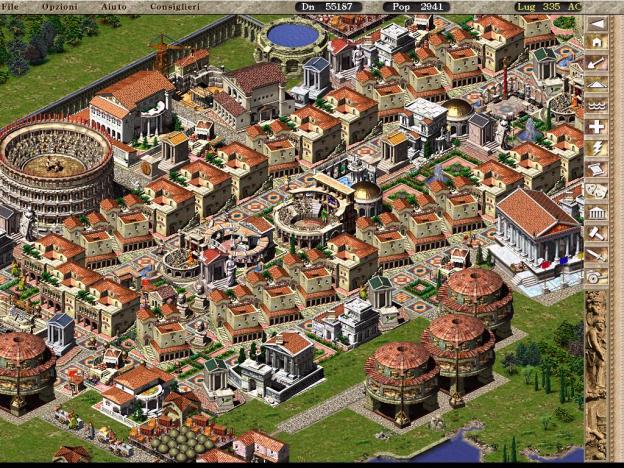
Your task is not only to build a functioning city, but to keep its people happy, reach levels of cultural advancement, obtain the favour of the Gods, defend the territory – or expand by attacking neighbours. All this, while keeping the Emperor happy (by sending gifts or providing legions when necessary), and the Gods pleased (with temples and celebrations).
Now, what I remember as extremely detailed and original at that time, was that the city literally became alive as the game progressed. Sim City, focused on modern-times city development, was beautiful but had a certain coldness to it. Here in Caesar, you could see citizens walking in the streets, each with a story: from the poor immigrants just arrived to settle in, to the farmers, workers, merchants, actors, priests and so on. Everybody felt like a wheel in the main clockwork. And you had the possibility to click on any individual and get some information about his life, together with detailed opinion on how was life in the city – including valuable feedback for you.
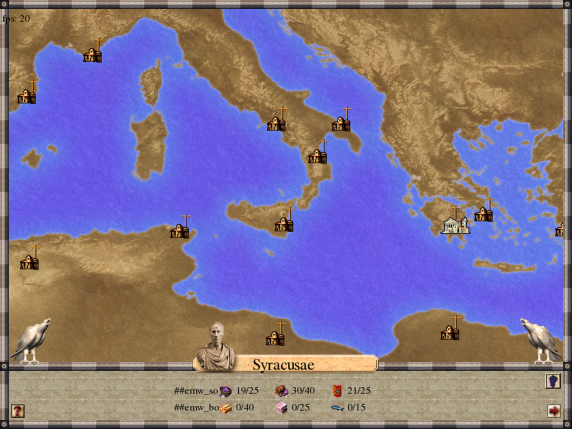
The game gave the player the opportunity to re-create cities and societies so intricate and interdependent, that felt alive, following the concept introduced by the amazing “The Settlers” (1993). Each city block had to rely on public water for drinking and thermae, so you needed aqueduct and sewers to ensure that. You needed schools, temples, access to culture and entertainment, police and fire brigades, marketplaces. Forget one of these, and the block wouldn’t flourish. Do everything right, and people would get wealthier and happier, with their initial little houses blooming into more complex buildings and finally villas. You needed to produce and trade resources. Oil needed olive trees, wine needed grapes, weapons were possible only if the region had iron mines. Otherwise you needed to import it from neighbours. And all of these activities needed manpower to function, and people needed to be housed somewhere. And then, just as when everything started to work together, barbarians attacked…
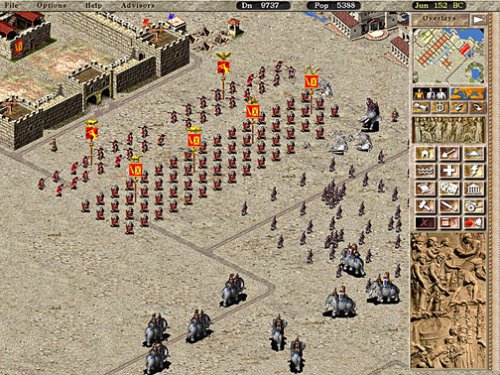
Great experience. Roman history, architecture, economics, foundations of social engineering and a very solid gameplay where every choice mattered. A big classic – available on GOG at around 5 euros.
*
Number 4: Spore
Created in 2008 by the legendary game designer Will Wright (famous also for Sim City and The Sims), this was his greatest project ever. And it’s hard to imagine a more ambitious concept: in a single game, the player could take control of a single-cell organism, starting in his primordial soup, then evolve his way up into more and more complex creatures, develop intelligence, move from water to the land. Then, found a tribe and compete (or cooperate) with the neighbours to build a lasting civilisation. Next, he needed to proceed to global domination, again by conquering or uniting all the other nations on the planet. And finally, to develop space travel, start to explore the vastity of the galaxy, and become a top player there. A four-billion-years-plus adventure with open ending. All in one single, epic game. Like, wow.
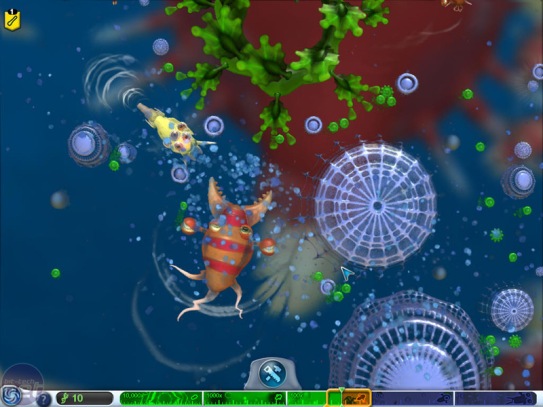
The project’s development took much longer than expected, and Wright had to compromise a lot of his original ideas to the publishers, the megacorp Electronic Arts (which, for gamers, generates equal amounts of love and hate; probably much like “Coca Cola” in the food & beverages industry). So in the end many hardcore fans were disappointed by the released game, seen as a half-cooked meal. Surely not as epic, original and creative as it could have been, the game still has its moments of glory.

While you move from the single-cell creature, choosing several evolutionary paths (herbivore, carnivore or both? aggressive or cooperative? religious, militaristic or trader?), the huge system of designing tools make this game a unique experience still today. Players can design ideas with the super-user-friendly tools built in the game, having original creatures, buildings, even spaceship designs. All these are automatically uploaded on a global game server: so in my game, on my own planet, I can meet creatures developed by other players from all over the world. And eat them. Cool!

Spore, in the intention of the author, was supposed to educate children to “think and see the world from a long-term perspective”. And in that sense, it works beautifully. Easy and friendly enough to be played by a kid, to a more mature player can reveal moment of insight – and great fun – on big questions such as “Are we alone in the universe?” “Where does life come from?” and “If we had four hands, how would my keyboard look like?”.
You can watch the entire TED talk by Will Wright here, where he describes the background story for this game and his brilliant visions on education (“as a kid I attended a Montessory school, up to the sixth grade. And that was the high point of my education. From that point on, everything went pretty much downhill”):
*
Number 3: Kerbal Space Program
I found out this gem of an independent game only recently, but it’s been around since 2011. The concept is very simple: on the planet Kerbal, it’s finally high time to develop a space programme and reach for the stars. And you get to run the Agency. It’s a “sandbox game” (which means you are free to play with it as you want and you develop your own objectives as you go) which, after starting very small, makes you end with a multi-billion budget fund, in charge of multiple space programmes, permanent space stations and interplanetary (or interstellar) exploration.
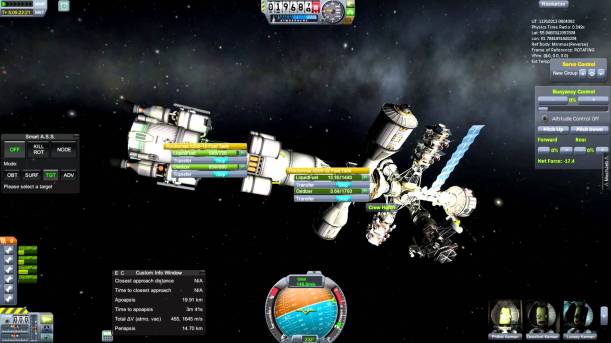
The gameplay is very simple, almost essential. Collect missions (or “contracts”). Build stuff, send it to space, see what happens. But what really strikes here is the impressive realism. The game could easily be used as a basis for a university exam of space engineering or astro physics – in fact, a few recent scenarios have been designed in cooperation with NASA. Like, the real one: they noticed the game and the wide following it has, so they got an interest and decided to support it.
The level of detail is so deep that you cannot even hope to play a “casual game”. Even to lift-off your earliest prototype (basically: a capsule with your crew, strapped to a big explosive rocket) will be a hard enough job, and will require you to get acquainted with concepts like thrust, yaw, aerodynamics, prograde and apoapsis. And for that, you have to study stuff.
And surprise: the whole process is really lots of fun!
Designing your models is easy enough; having to deal with the silly kerbans makes the whole experience playful and light; and the steep learning curve ensures that each time you succeed, you will feel really rewarded. I mean, you want to blast your guys right into orbit basically by having them to sit on a lot of explosive material, and setting it on fire. It shouldn’t be easy, right? And don’t forget that later you will have to manage the hardest part: re-entry.
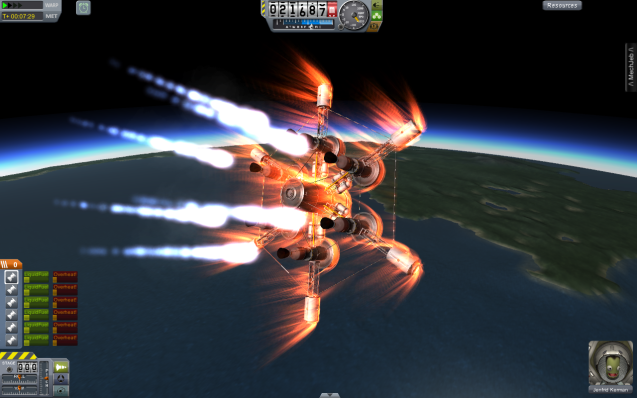
This is a game that forces you to face failure so often, you will simply stop counting. It can be frustrating, at times. But guaranteed, each disaster will be an opportunity of learning. Not to mention that watching all your carefully designed rockets go heywire and explode for no apparent reason, seconds after take off, is incredibly hilarious – and annoying at the same time. As it turns out, in science everything happens for a reason. The game asks you to acknowledge that. And to find those reasons you need to go back to the design phase. Scratch your head, change something, try again. To reach the right balance between engine power, fuel, attrition, payload is a matter of trial-and-error, and each error means BIG EXPLOSIONS.
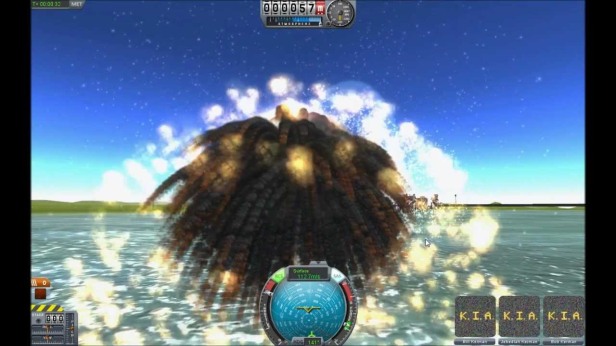
It’s very addictive and full of “WOW” moments. The community around this game is so active, you can find tons of videos and very detailed tutorials to help you achieve just about anything. Try to google “mun exploration” and see for yourself (“Mun” is the Kerbal equivalent of the Moon).
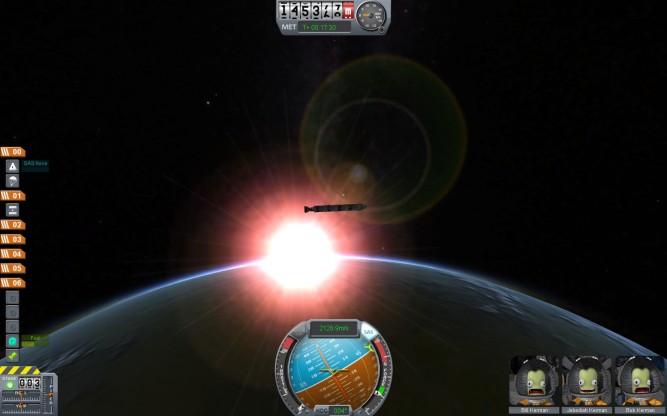
Hours and hours of hard work, which in the end will be their own reward. And in the process, you get to learn so much about physics, space exploration, astronomy, engineering. And the feeling of finally making it into orbit, and seeing the glorious sunrise from the space, is glorious. Never mind that all the crew died horribly during a catastrophic re-entry phase.
For another example of the realistic epic-ness possible with this game, check out this Earth-Mars return trip in 5 minutes (1,5 million views on youtube):
*
Number 2: Europa Universalis (and Paradox Interactive Games)
Mention of honour for the games by the Swedish team of “Paradox Interactive“. These are the benchmark in historical simulations. In “Europa Universalis” the player gets control of any country on Earth in the year AD 1441. And I mean ANY: from the smallest European principate, to the Ming empire in China, to any native American Nation. Click “Start”, and it’s true “what if” pleasure. As player, you get to control every aspect of your country: politics, economy, trade, military, religions, technology, and the decisions to explore (or not) the unknown world, build your own colonies and meet new powerful allies – or enemies. The game is huge, and spans four centuries of real world history, roughly until the 1820s. Whatever happens during all that time, is up to your decisions, and those of the other players (AI or human).

Given the size of the game and its variety, every playthrough will be a different story. In one, you can get to control medieval Japan, unify under one Emperor, and then change into a constitutional Republic and beat the European powers into the arms race. In the next, starting as one of Russia’s duchies, you can found a modern Russian state and become the ultimate imperialistic nightmare, conquering one after another all the other European countries. Or, again, as the Incan Empire, pump up the technological progress of your army and develop alliances with the other American countries, so when those nasty European explorers arrive, they will find a few surprises in the New-New World. Or – how about discovering and claiming Australia on behalf of the Republic of Venice?

The game declares “alternate history” its playground. The realistic setting (our Earth) means that every game starts in the same way, while the endings will be totally unpredictable. Discovering all the secrets of the game (easy to start, hard to master) is very rewarding, and its incredibly rich and detailed background in history, geopolitics, anthropology means that every hour spent in game is actually a deep immersion in an enciclopedia-wide pool of knowledge.
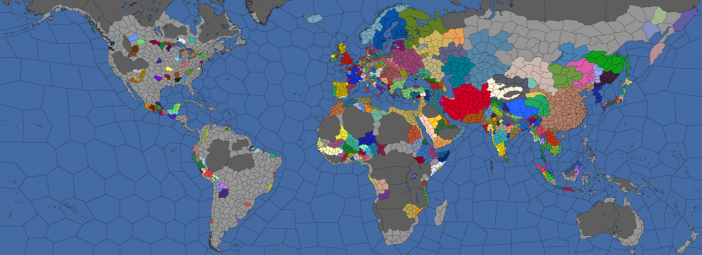
Worth mentioning are also other Paradox Interactive games, based on similar concepts: Victoria (on 19th-20th century industrial revolution and imperialism); Crusader Kings, a superlative feudal system simulation (beloved by the Game of Thrones fans, who can reproduce the same levels of family plots and brutality intrigue); and Hearts of Iron, centred on World War II, and the events that led to it.
Seriously, if you like strategy and history, check everything these guys do. It has the mark of excellence.
*
Number 1: Civilization (series)
Aaaaand… the first prize, gold medal, top of the hill goes to the grand-father of all strategy and alternative history games, the glorious Civilization, developed by Sid Meier in 1991 (and now in his fifth reincarnation. The game, not the author). When released, it was the first (enciclopedia-size) attempt to put all of the world’s history into the player’s hands. You started by taking control of one of history’s big civilizations, in the year 4000 BC, and kick-off history anew.
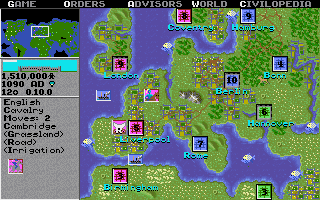
It was like the perfect Petri dish for “what if” scenarios. The setting was plausible but not strictly realistic: every game started on a newly generated earth-like landscape, so as France you could found Paris as a coastal city, in a tropical climate, and having China and the Aztecs as neighbours. This well grounded, but light-hearted “everything can happen” spirit is what gives this game its endless renewable energy. Spanning over the entire human history – from 4000 BC to a slightly futuristic date – you are completely in control of every aspect of your empire, and the way you win or fail is totally up to you.

Will you end up building a global Empire, with cities across all over the world? Or a small, more focused local power? A technologically advanced society, first to develop interstellar travel (and “win the game” by colonizing another planet); or a militaristic one, subjugating your enemies at gun point? Once discovered, will you decide to unleash atomic worldwide destruction (and deal with the consequences, ruling over an empire of nuclear wasteland), or cooperate with the other civilizations and ban its destructive power for good?

All choices are in your hands. Later editions introduced trade, religion, art & culture and ideologies as other relevant aspects of the game; and the levels of possible customization (fast or slow? small world, large, or huge? temperate climate or desert planet? and so on), plus all the player-generated content mean that the game still has a lot to say to this age. By the way, most experienced players would say that Civilization IV, complete with all the expansions, is the best of the series. You can find it at budget price, if you are curious.

Civilization also spawned several spin-offs. Worth mentioning are the two Colonization(s), reproducing the conquest of the Americas – and of which, the first (1995) remains by far the best. It’s a great way to teach (or learn) the early American history until the Declaration of Independence, from an almost unbiased if maybe a bit naive point of view (slavery is totally absent from the game, while Native Americans are treated in a sensible way).
Alpha Centauri (1999) was also a very interesting experiment, trying to explore what would happen if, finally, the terrestrials would spread to another planet. Not a game for beginners, it had some very interesting gameplay solutions – and a great story. Its heritage is held by the recent Civilization: Beyond Earth (2014), which received mixed reviews by critics and players. Anyway, this is good sci-fi territory: great ways to explore not only alien planets, but first of all the human nature.
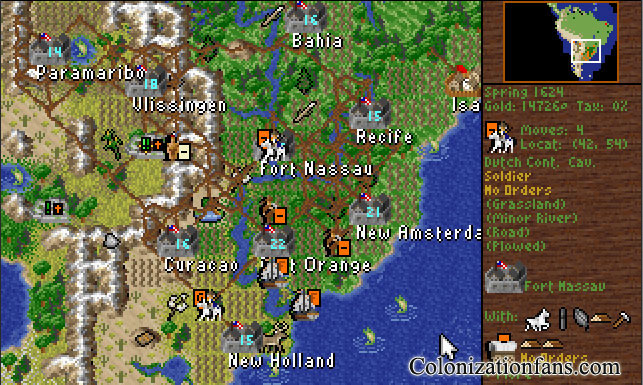
Right. Now, Steam informs me that, up to this date (11th February, 2016), I have spent 1632 hours playing Civ V.
Multiply by five, and you have an idea of the hours I invested in this series (hint: it’s a lot). It’s close to the “magic number” 10,000 that, research says, turns one into a real expert of a field. So, I am almost a world-class expert on Civilization.
What does it mean? That I developed strategic thinking, decision making and problem solving skills, a cause-effect vision of history, and an extensive knowledge about world cultures, geography, history, philosophy, technology, military history, economy, art and culture. I am a champion in pub quiz games, and when people ask me in bewilderment “How did you know that Chu Ko Nu was the name of an ancient Chinese crossbow?”, my vague explaination is “Oh, I must have read it somewhere…”. Yes, but for 10 thousand hours.
*
Ok, well, done!
So, my top 5 list is over, and now you know what are some of the most interesting, challenging and inspiring games I ever put my hands on. So next time you are looking for something new, one of these could be an idea to start a new addiction passion. You have been warned.
Or maybe, next time you see somebody so deeply taken by something on their computer… don’t disturb them. Maybe they are not playing. They are learning.
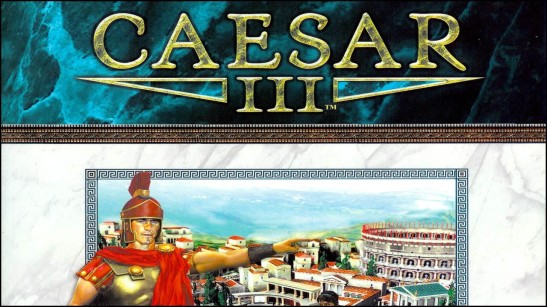

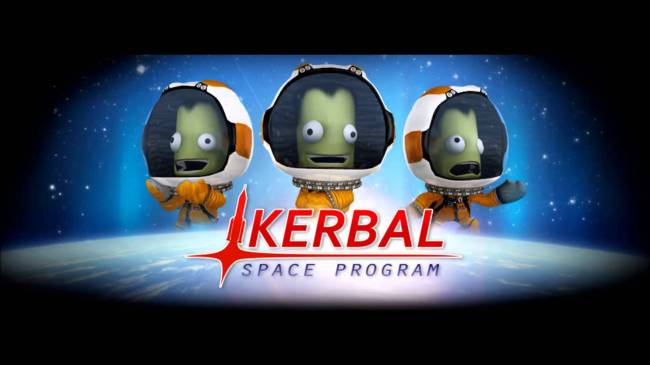
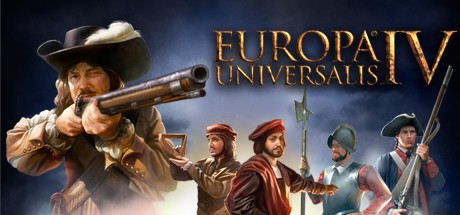

Great post as always, and I always look forward to continuing this discussion :) – even if I would write my list slightly differently, but this is where the fun is :)
Talking about the last sentence, let me just quote mr. “Digital natives” himself, Marc Prensky, and his book of 10 years ago about this topic: http://marcprensky.com/dont-bother-me-mom-im-learning/ ;)
LikeLike
Thanks :) I fully agree. However, the point is very controversial. There are of course very negative sides in the excessive gaming, as with every other form of “binging”.
“Don’t bother me mom, I am learning” is the life story of so many people who discovered videogames in the 80s-90s, when the general public was mostly unaware of their power. Kids, as always, got it first.
… what would be your list, then? :)
LikeLike